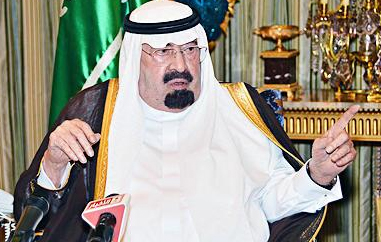 Jeddah, Jun 29: Custodian of the Two Holy Mosques King Abdullah emphasized Saturday that Saudi Arabia is determined to root out terrorism, adding that Riyadh would adopt all measures to protect citizens and residents from the menace.
Jeddah, Jun 29: Custodian of the Two Holy Mosques King Abdullah emphasized Saturday that Saudi Arabia is determined to root out terrorism, adding that Riyadh would adopt all measures to protect citizens and residents from the menace.
In a message to the nation on the advent of Ramadan, King Abdullah expressed hope that militants who instigate terror in different parts of the world would return to their senses after realizing that such activity goes against the teachings of Islam.
The message, which was read out on Saudi Television by Culture and Information Minister Abdul Aziz Khoja, urged Muslims all over the world to stand united.
The king and crown prince congratulated Saudis and other Muslims across the world on the advent of the blessed month. He said fasting in Ramadan fosters feelings of mercifulness and compassion in the minds of the faithful, as they compete to fulfill acts of charity to win divine reward.
“During Ramadan, we celebrate the revelation of the Holy Qur’an as a form of guidance to mankind,” the message said, urging Muslims to spread its message.
“Islam is a religion of unity and brotherhood and it calls on people to engage in righteousness,” it added.
The message said the militants are confused, as they are unable to differentiate between reform and terrorism. The king stressed that Islamic teachings urge Muslims to uphold tolerance. “Our faith rejects all forms of terrorism and we will not allow a bunch of terrorists to frighten others.”





Comments
Add new comment